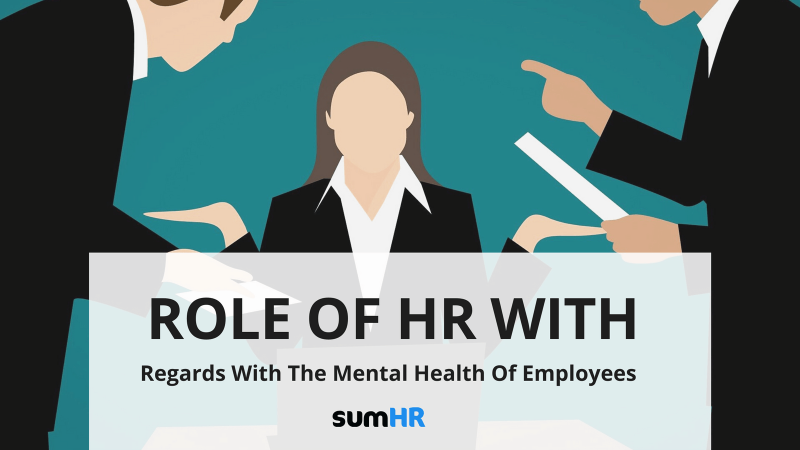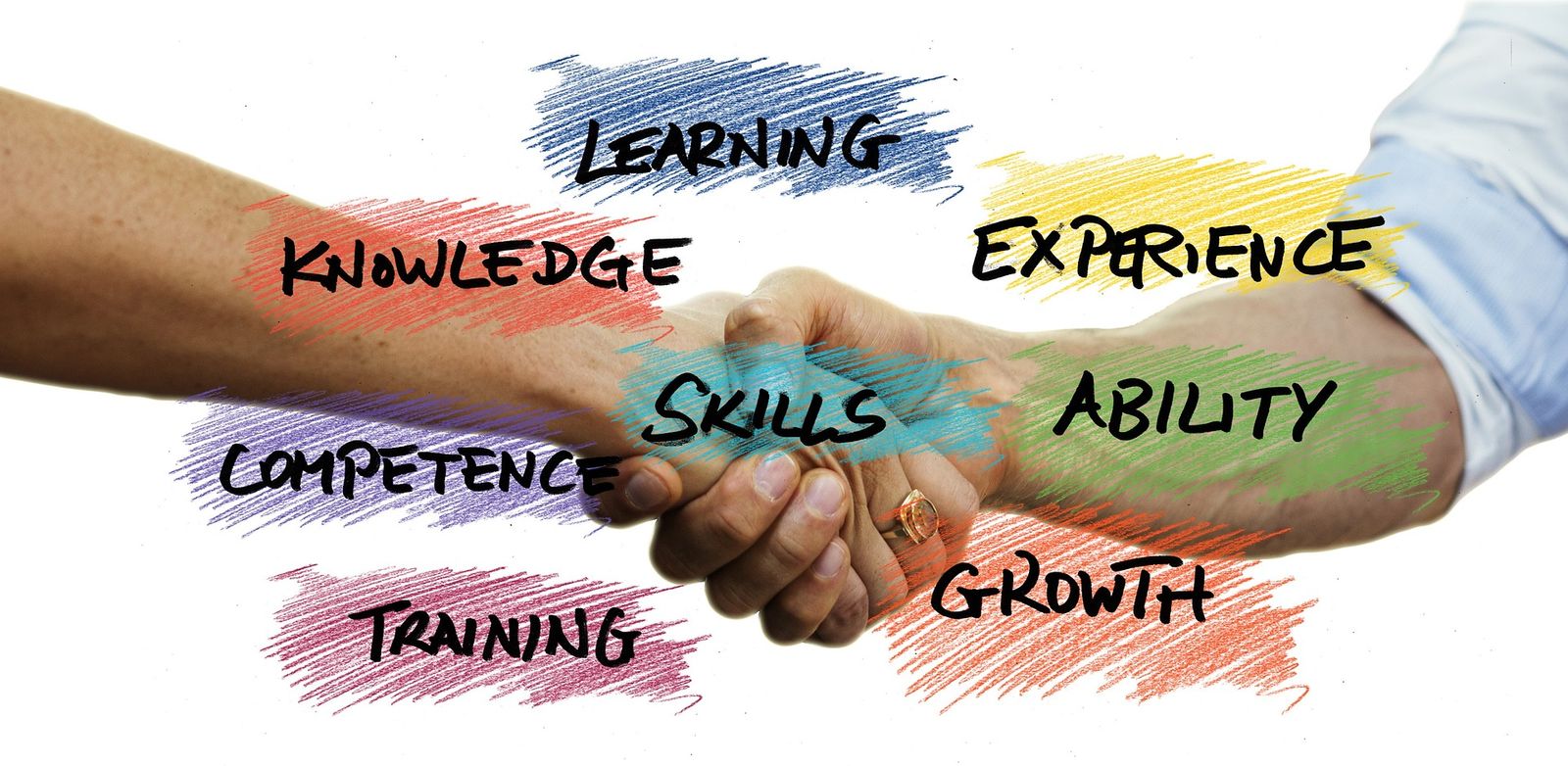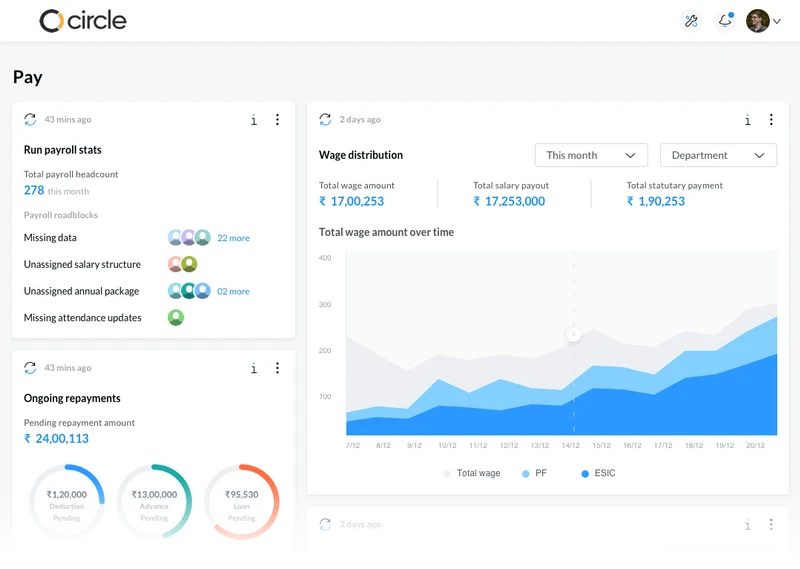So, folks, just imagine yourself strolling in the garden. But, unfortunately, you tumble, and the sheepish landing results in a broken leg. Work is a non-stop process, and you certainly can’t carry on with a fracture, so you are given time to heal, which is awesome.
But what about your mental health?
Does anyone even take notice that something is wrong and needs attention?
Do you even pay heed to it as a normal disorder that might occur and will need time to recover just like a fracture or any other malady?
I suppose the answer is a big no.
Did you know?
One in six people in England aged 16 to 64 have a mental health problem, and it is computed that absenteeism because of mental health issues amounts to the UK economy around £34.9 billion per year.
With 12.7% of all sickness absence days in the UK are associated with cognitive ailments. This is the case with the entire world.
And, these are not statistics that can not be overlooked, especially by you, as the HR of the company. Human resource management and mental health go side by side in a successful, flourishing organization.
Increasing workplace stress, job insecurity and heavy workload are bound to increase the stress levels of your colleagues. Human Resource Management should take care of the staff mental and health difficulties and safety concerns.
The United States of America is known to have the most productive workforce because of high staff turnover and effective health resources
By having the appropriate degree of understanding during the interview, monitoring, and absence of employees, HR experts literally contribute to a decline in the number of active days relinquished due to mental ill-health each year, they will reduce the cost to the employers, and most significantly it will develop a content workforce.
When your mind is disturbed, it is bound to affect your physical health and, thereby, lower your morale and overall productivity.
Senior leaders play an essential role in resolving workplace issues especially with regards to the health care system. It is one of the primary responsibility of the senior management to help colleagues in decision making and other activities for overall employee wellbeing.
The same goes with your employees, and as an integral part of the organization, you should take care of the overall well being of your teammates who work with you day in and day out. Mental illness can be one of the most debilitating conditions and can go unnoticed with disastrous aftermaths.
Therefore, you are the one credible for the all-around good employee health and the employee performance in the company!
How can you an HR overcome this problem?
Especially in these uncertain times, between surging numbers of Covid-19 cases, concerns about whether or not to reopen economies and industries, and the monetary fallout of the pandemic, everything is very unpredictable. It has had a direct impact on the economy and human capital, globally.
Here arrives another factor that is contributing to the negative effect on our mental health, including at work.
Health care professionals found that the mental fitness of almost 42% of respondents had deteriorated since the outbreak commenced. The lockdown that was imposed lead to a decrease in human interaction, which further deteriorated the mental health of many people.
Since you are the HR and mental health of your teammates is your responsibility, therefore, your utmost attention should be given to this matter.
Regular meetings regarding the safety and mental health condition of the employees should also be held. Effective people management, flexible hours and reasonable accommodation will certainly boost the performance of your colleagues.
As a professional HR expert, there are steps you can take to ensure mental health endeavors are executed and ratified by the business.

1. Get the team chatting to lessen the stigma.
It always feels nice when someone initiates a cheerful conversation and asks questions about your goals in life, doesn’t it?
And as the HR, if you do it for the breadwinners, then what is better!
Conversing about mental health conditions also plays a crucial role in facilitating to reduce the stigma, so your hardworking staff feels more able to speak their mind when they’re attempting to.
Bringing on guest orators to speak about their journey with mental health initiatives can help in motivating senior authorities to speak up about coping up with mental health illness during with current situation will surely help to get the chit chat ignited.
If you really care about your family at work, you can begin the discussion by informing them that you have noted that they don’t seem their natural self and clarify the differences you’ve noticed in their temperament or personality. Tell them that you sincerely worry about them and ask about what is troubling them. Practical advice on how to balance personal and work life would be the cherry on top of the cake.
2. Train staff at all levels
Early intervention can curtail the effects of anxiety and impoverished mental health, so people like you who are in authority must discern symptoms that their staff is fighting with.
With enormous workloads and different management methods found to be the prime reasons for stress-related absence and poor performance, some employees may also be afraid to have these talks.
Training the workers to use the innovative and advanced HR Software which automates tasks like payroll, attendance management, performance management, and more will also equip them to work better. Providing stability training, and encouraging staff to support themselves by making changes in the work policy as well as by using various software tools, is a strong method of enhancing the overall wellbeing of the invaluable employees.
3. Model robust behaviour
Just saying that you are an advocate of mental fitness won’t do the task, you will have to do it yourself too!
Set an example, too, with your vibrant personality so that your co-workers understand that they can prioritize self-care and self-love.
Employees are so immersed in their team’s good spirits and in getting the job done that they ignore that their fitness matters too. So you must try to share that you’re going for a therapy session, dinner date, or buying a PlayStation for yourself.
Don’t you think this will lighten up the atmosphere so much and double the efficiency?
The employees understand that they can be open with you about their personal issues and may even receive substantial pieces of advice regarding work and personal life. While as an HR, you are not supposed to force your employees to reveal any personal information. But nothing officially stops you from getting down to their level as a friend and establishing that you are open to having conversations about their difficulties.
4. Communicate more than you think and be a good listener too
Wouldn’t you like it better if your boss shares all the important work updates and deadlines beforehand?
So would your employees!
Make sure you keep your team well acquainted with any organizational alterations or updates. Elucidate upon any change in work hours or criteria.
Eliminate burden where possible by setting goals about workloads, prioritizing what is urgent, flexible scheduling and admitting what can be skimmed if needed.
Remember that workers who feel that the director or HR is too rigid or going to them are just like going close to an active volcano are more likely to face mental health issues.
Therefore, don’t become an eruptive volcano when someone comes to talk to you.
When somebody shares that they’re struggling or why their self-esteem is low, you won’t invariably comprehend what to say or do. What’s most vital is to make room to hear how your team fellows are truly performing and to be compassionate. They may not want to share much detail, which is totally fine. Understanding that they can is what matters the most.
Be a good listener and that marvelous person who knows how to feel everyone inclusive.
5. Be cordial and welcoming, just like a friend.
Isn’t it very obvious now that applicants have had traditional skepticism that speaking out about their mental problems mean bias will follow during the job course?
And guess what is the only amazing fact in this situation, that you as a recruiter have the power to make them feel comfortable and safe.
Even though the law safeguards breadwinners, you must make this extremely apparent so that probable employees don’t keep a mental health problem to themselves just because they worry about prejudice. At the onset of the recruitment phase, you should say that adjustments will be made for applicants who have some genuine issues, which includes any individual with mental health crises.
This way, you won’t even have to give up on really talented people, and those gems, too, will adorn your firm with their skill.
You can also initiate an employee assistance program with a qualified health professional that ensures the safety of employees and includes enlightening employees about mental health and the hazards of anxiety, knowledge about nutrition and workout, different training programs for a proper work-life balance, and mental health awareness drives, and promoting open conversation.
This way, staffers are comfortable about discussing their mental health because they will be aware that the employer will also support them.
6. Work from home is the new normal and thus needs special attention.
Those of us working from home have had no option but to be translucent about our lives and the nitty-gritty, whether our children have wrecked our video conferences, our colleagues have gotten glimpses of our residences, or some embarrassing conversations were overheard because we left our microphones unmuted!
When you describe your challenges, be it mental-health-related or not, it brings about the more humane, relatable, and courageous side of you, which your employees will admire.
A study has demonstrated that genuine administration can develop faith and enhance worker engagement and productivity. Being truthful about your mental health battles as an authority unlocks the door for staffers to feel safe talking with you about their mental health challenges.
Checking on the health conditions of your employees is the duty of every human resource department!
Do you know what the biggest problem is nowadays?
People listen to reply and not to understand one another. But you are not one of them, we presume!
Most people do not need advice but just an ear to listen, a hand to hold, and a heart to understand.
If just by giving two minutes of your daily life, you can make a person’s life better, then we don’t think that you should even give second thoughts to such a noble idea.
7. Be considerate and flexible.
You need to assure you do not have any business strategies which aren’t facilitative to positive mental health implication. Rather than being extremely dull and pressurized, the workplace should energetically stimulate optimistic wellbeing.
You can instill this by involving friendship, pursuing a meaningful vision, providing learning opportunities, organizing important jobs, and possessing a practical knowledge of the mission.
Someone who supports the employee mentally and asks about their well being in all circumstances is a true HR.
Would you like it if someone calls you crazy, nutter, loonie, or psycho, casually?
How terrible that will be!
And, it can have harsh consequences on the employee mentally too.
Mental illness should not be made fun of and instead, we should pray of the sufferer’s speedy recovery.
Therefore being a responsible HR Manager, even you and other employees should be empathetic and mindful enough not to address someone with mental health concerns with playground slangs like “mental,” “schizo,” etc. in any circumstances.
You should also strive to launch the Employee Assistance Program for the well being of your professional family. Such Employee Assistance Pro
Isn’t it a simple thing to not hurt anyone and be as caring as possible?
Very little is needed to make a happy life, and as an HR, you have the extraordinary power to bring a smile to so many faces every day
8. Recognize the incredible contributions of people with mental health problems
How many skilful and innovative people, people whose books we cherish, whose movies we love, their arts we admire, have had many problems with depression, for example, Vincent Van Gogh, Michelangelo, etc.
The same goes for your company as well. Exceptional talent and creativity often come with a price. Many of the extraordinary employees whose work the firm finds so up to the mark and on point perhaps are troubled by depression, anxiety, and mania.
Therefore, awarding people on a weekly or monthly basis through vouchers, special announcements, certificates of appreciation, bonuses, promotion, etc., is necessary for an organization to thrive.
When the employees feel motivated and enthusiastic and know that you care, they will then certainly put their heart and soul into their work.
Such incentives and recognition not only boost the morale and confidence of the breadwinners but also increases their loyalty towards your company and other staff members.
How hard it is to give a moment to appreciate someone’s work or talent, it might just take a moment for you, but for the other person, it might mean the world!
With so many Covid-19 cases coming up each day, as much as we might like to return to the way things were, they won’t. We will have to learn to live with the pandemic and teach this to our employees, too, be it an SME or a behemoth.
Covid 19 has also led to an exponential rise in the unemployment rate so companies should consider the stressor on breadwinners and smoothen the hiring process.
So let’s utilize this opportunity to establish the mentally robust workplace cultures that should have prevailed all along. Just how significant are Human Resource and its roles when trying to battle mental health in the office? In brief, it’s absolutely necessary, and no organization can go without it. Mental health training is a must in every organization which dreams to be successful.
Covid-19 has taught us to be grateful for what we have and not take our physical health or mental illness lightly.
Hence, visiting the doctor about them and finding solutions is very essential.
It doesn’t matter whether you are an HR manager of a small business, SMB, or serve in a global organization. If you are ready to help out your co-workers that will ultimately lead to the success of your firm, then nothing like it!
What are you thoughts on role of HR with regards with mental of employees?
Drop your views in the comment section.
Also if you have any questions feel free to drop them in the comments as well.
If you’re looking for an HR software to ease your tasks book your free demo to sumHR








